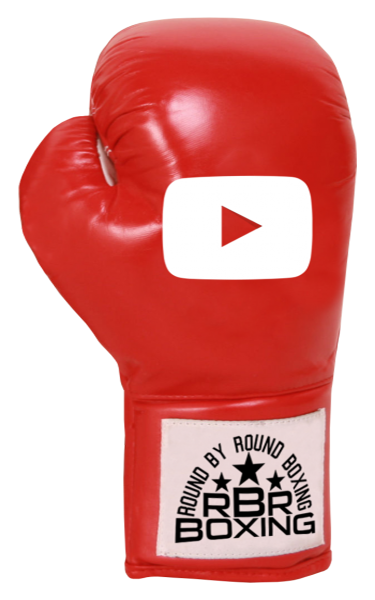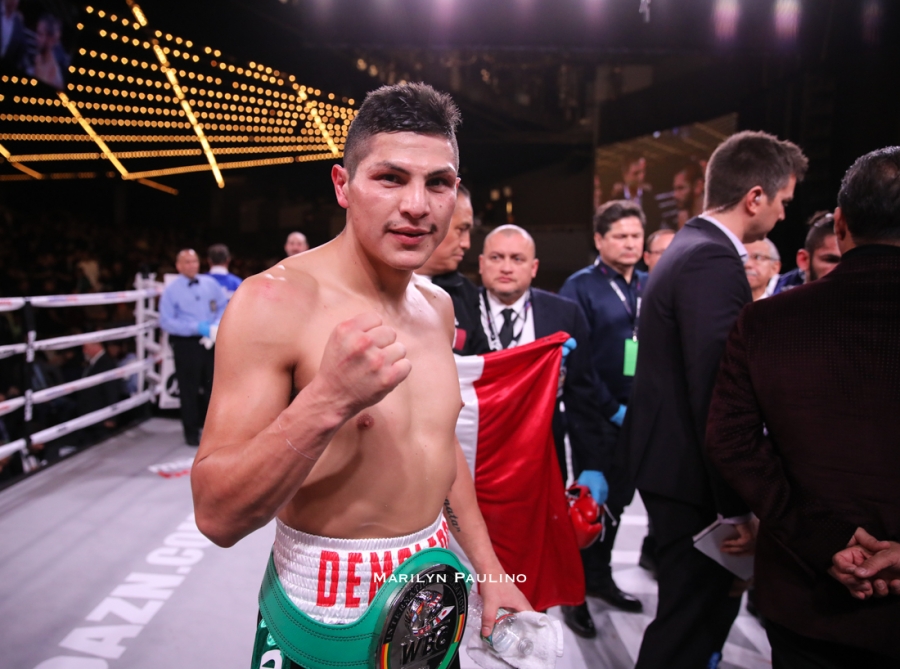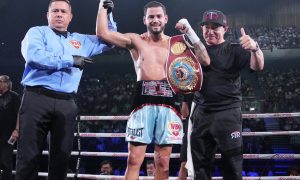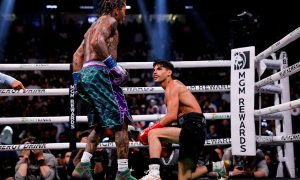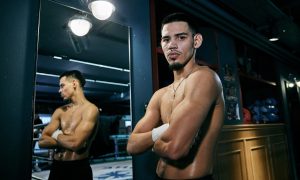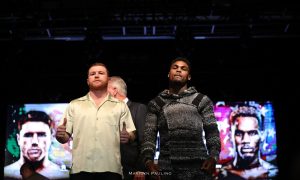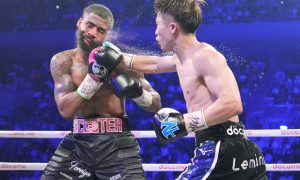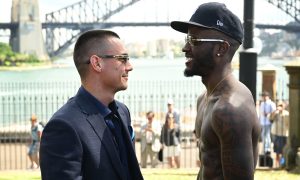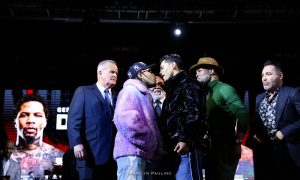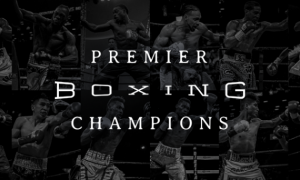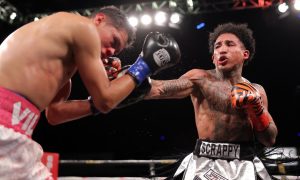At only 30 years of age, “El Demoledor” has been a professional for 14 years. Almost half of his life. This is for a number of reasons.
Pablo Cesar Cano wanted to be a world champion from the first time he laced up a pair of gloves: to follow in the rich boxing heritage of his native Mexico. World championships exist in the amateur ranks, however the prospect of money does not.
If we’re measuring the breadth of his amateur experience against his equally talented peers, Cano didn’t have many fights at all–only 40, although they include a Golden Gloves title.
“I always hated the amateur style,” said Cano during a recent interview with Round By Round Boxing. This is a oft-repeated complaint by those who turn pro at a young age. Such fighters favor professional-style scoring, and fighting, as both tend to reward effective, hurtful punches and strategy over sheer volume.
Growing up in Mexico meant that Cano didn’t need to look far in order to find boxing idols and role models. Of course, the legendary Julio Cesar Chavez and the gone-too-soon Featherweight sensation Salvador Sanchez come readily to mind for him.
Bantamweight icons such as Ruben Olivares and Raul Macias round out his personal list. Macias, like Cano so far, ran into his fair share of bad luck during his career. He chased recognition and undisputed championship status at Bantamweight for years before dropping a split decision in his only crack at the belt.
Cano, however, is squarely in the middle of his prime. Despite some questionable decision losses and sustaining fight-ending cuts, Cano’s exciting style, relentless mental makeup and punching power make him a tough out. No matter who he’s matched up with, he is always in the fight, and this has continued to earn him well-deserved shots at bigger names in his weight neighborhood.
This new career trajectory was launched by a surprise date with Mexican legend Erik Morales on September 17, 2011, in Las Vegas. Cano, then an undefeated prospect, was called upon to fill in for Lucas Matthysse on only eight days’ notice.
Cano was originally slated to be going to the event–headlined by the now-infamous Floyd Mayweather vs. Victor Ortiz head-butting incident–as a guest.
His team advised him against agreeing to fight on such short notice. Morales may have been old, but someone at his level is always dangerous. Cano, for his part, showed a bit of the character which has carried him so far in overruling them.
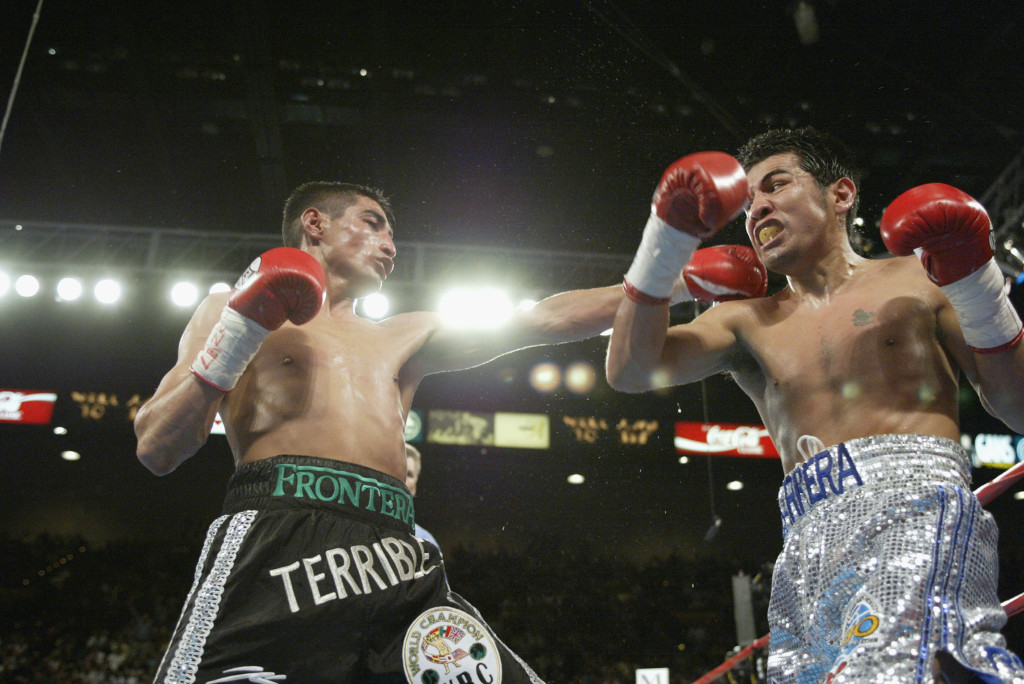
As an added bonus, the fight would be for the vacant WBC 140-pound world title. That detail was not lost on Cano, and neither was the fact that he was going to be in the ring with an all-time great. “It was like nothing I’ve ever experienced,” said Cano. “My legs were shaking at the press conference and in the face off. Morales is a legend. But, once we got in the ring, it was just another fight.”
Cano showed flashes during the fight which proved he belonged at that level. He won a few early rounds before a cut over the left eye and swelling over both forced the ringside doctor to stop the fight after the 10th.
It was a valuable experience, and only served to strengthen some aspects of his innate character. Nerves may have been a factor early in the Morales fight, but from then on, Cano has shown an increasing urgency in all of his ring outings. From Round 1 on, he is constantly on the attack.
“I never want to let my opponent seize the initiative or give him momentum,” said Cano. “So much can happen in a fight, from cuts to anything else you can think of.”
This attitude that opponents must always be met with aggression and be beaten into submission has been reinforced by his history of bad cuts and questionable judging. Fighters of all disciplines are well-acquainted with the fact that, in the ring or cage, the only certainty is uncertainty.
Cano chooses to meet it on his own terms.
In the two years following the Morales setback, Cano was able to fight his way back to two big-name fights, albeit, a weight class up at 147 pounds. The first was a 2012 title shot against Paulie Malignaggi for the WBA Welterweight strap.
Cano’s aggression was somewhat muted by his opponent’s jab early on, as he sustained a cut, and was kept off-balance. Through the later rounds, his aggression began to wear on Paulie, as he landed more consistently and visibly shook the champion.
Finally, in Round 11, Cano timed Malignaggi’s head and foot movement perfectly, dropping him with a perfect right hand to the chin. He would ultimately lose a split decision, 118-109 and 114-113 and 113-114. Depending on perspective, one could say that all three scorecards were wrong.
He followed up that hard-luck night with another against future Hall-of-Famer in Shane Mosley. Mosley turned back the clock that night to barely edge Cano out. He was shaken a couple of times throughout the fight, but always threw punches back almost immediately.
This proves that Cano has the makeup of a fighter who is always dangerous.
“This has always been an instinct,” said Cano. “It isn’t something I learned along the way. I always go forward no matter what – even though that hasn’t worked out for me a couple of times, I will always fight this way.”
Since then, he’s been able to add a few more big names to his ledger, including victories over Ashley Theophane, on the undercard of Floyd Mayweather vs. Canelo Alvarez, and Mauricio Herrera. Both were split decisions which should have been unanimous. But, a win is a win.
He remembered both of those close calls when he stepped into the ring against former three-division champion, Jorge Linares last January.
In what was one of the most stunning upsets of 2019, Cano dropped Linares three times, en route to a first-round knockout. Many casual fans saw Cano as a walkover, and Linares’ entry into the 140-pound weight class after his loss to the pound-for-pound level Vasiliy Lomachenko at 135 pounds.
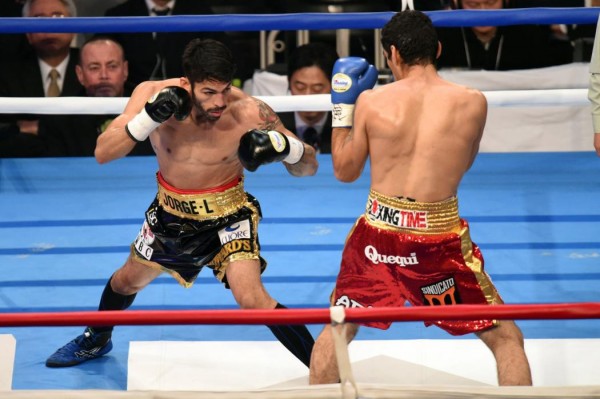
Cano had other plans.
“That was always my strategy. Fighting at a distance and letting him dance and move does nothing for me,” said Cano. “I knew I was stronger and bigger, and I wanted to hurt him early.”
Linares had no answers for Cano that night, and was physically dominated. With that win, Cano vaulted from hard-nosed career spoiler to a legitimate contender. Linares was forced to reconsider his move up, and dropped back down to 135.
When life and live sporting events resume, Pablo Cesar Cano is primed for a title shot at 140 pounds. It’s already obvious that Cano will fight anyone, but he had one champion in mind when asked.
“I want Jose Ramirez,” said Cano. “I’ve been an interim champion, but I want to totally fulfill my dream of a world title.”
He would be attempting to become a unified champion, as Ramirez holds both the WBC and WBO belts. The champion’s Olympic background would give him a technical advantage, but that’s something Cano is used to at this level.
His feeling is that he will make it rough against any other opponent with two hands and a chin: an attitude that should endear him to fans.
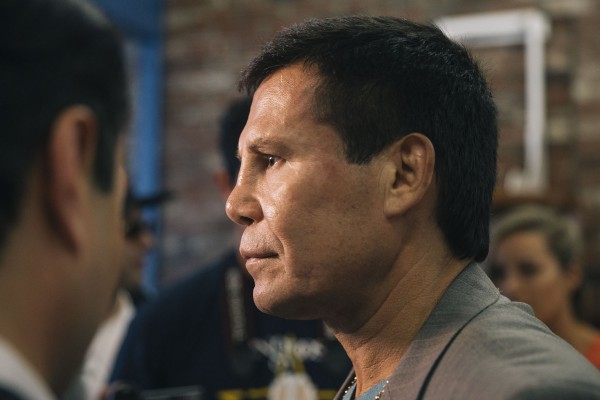
Cano’s choice of his all-time fantasy matchup further strengthens the hard-nosed demeanor he shows in the ring. It’s an obvious one–Julio Cesar Chavez.
However, Cano longs for the era Chavez fought in just as much as he does that single matchup.
“I’d like to go back to when guys were more willing to fight the best,” said Cano.
The common thread is clear; from here on out, Cano only wants top-level opponents. He has definitely done enough to earn those fights.



